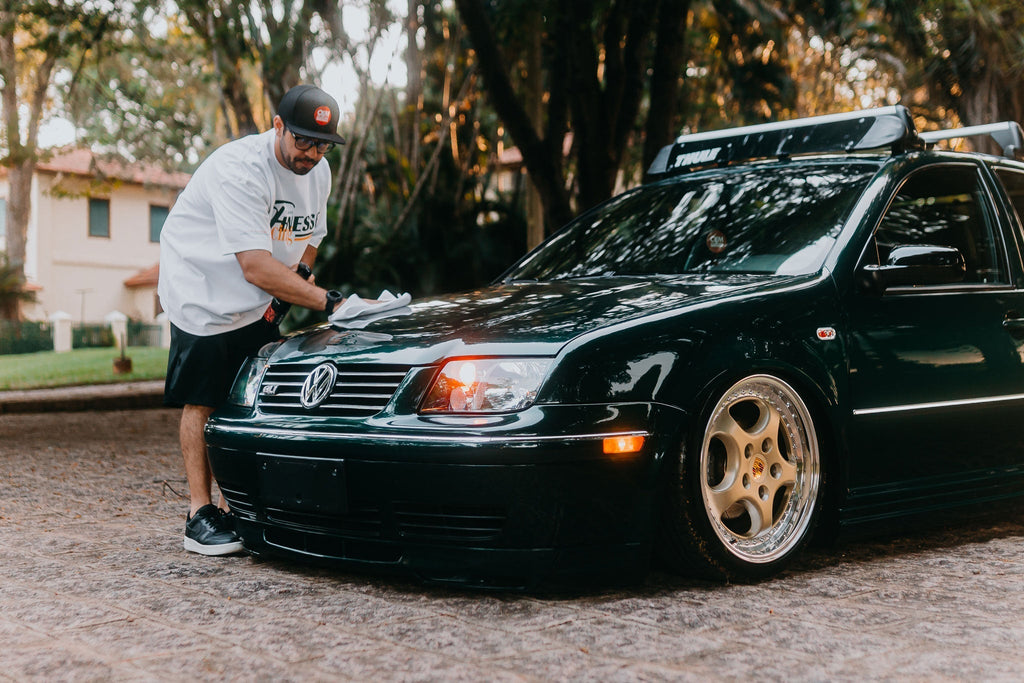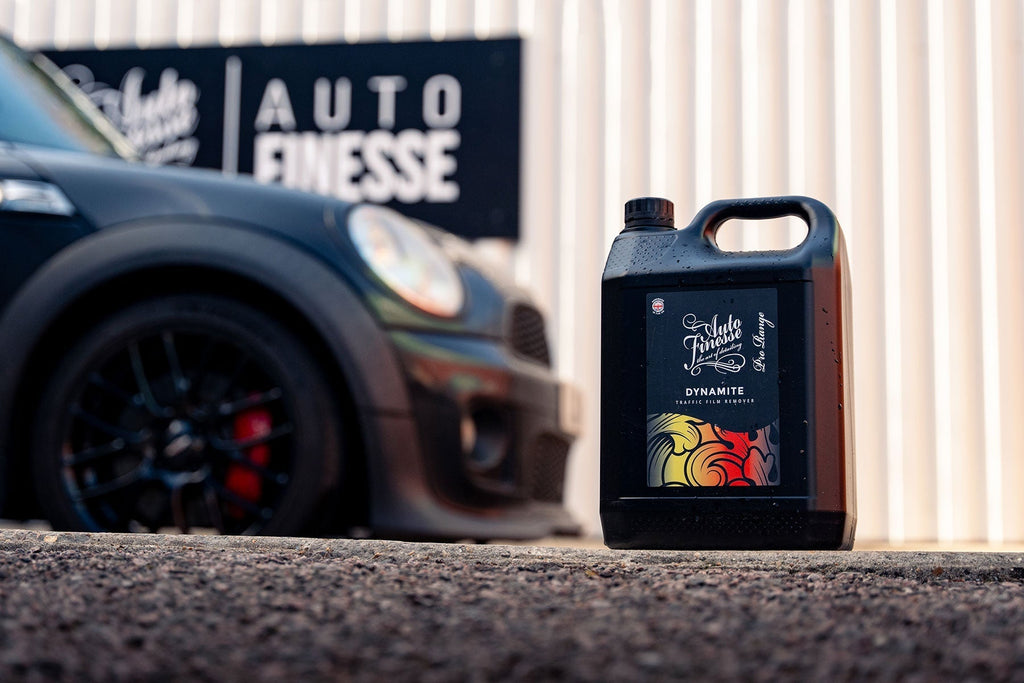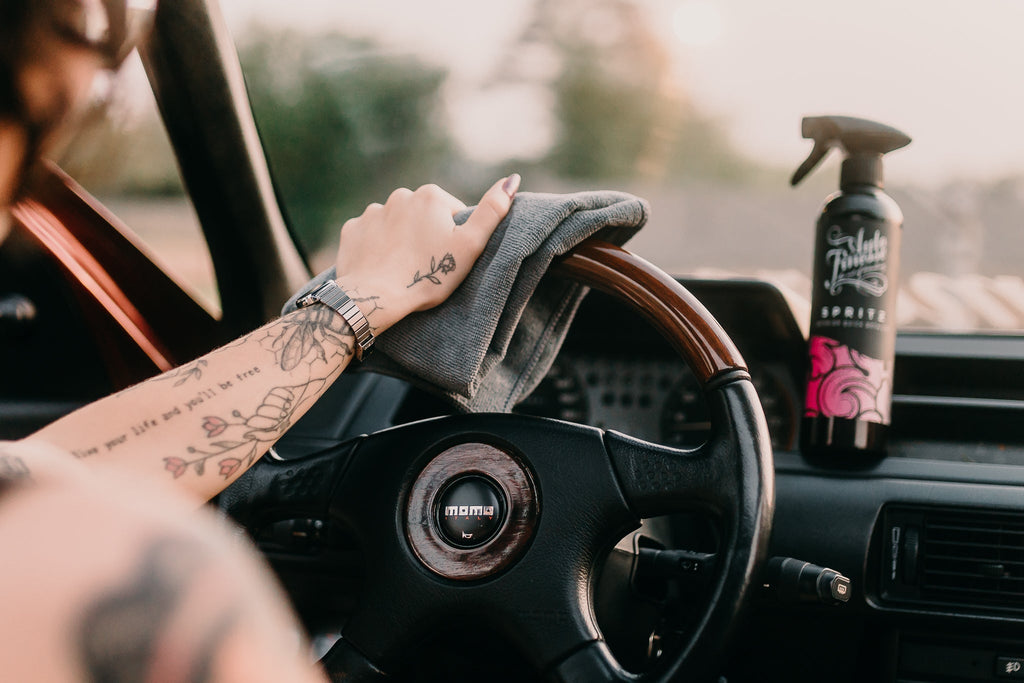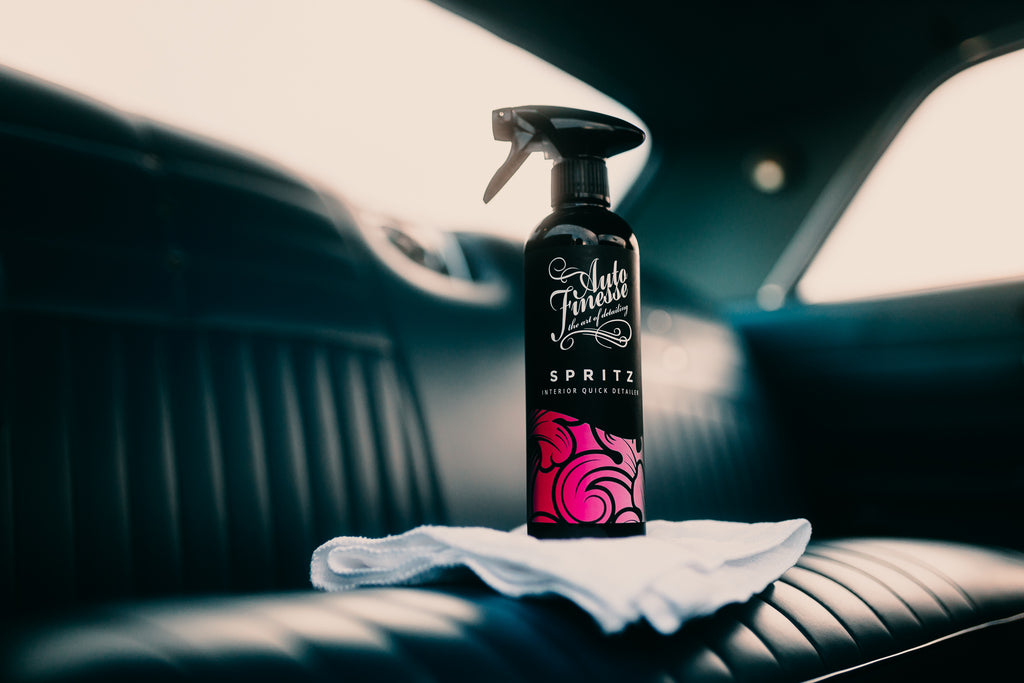The Safest Way to Perform a Contact Wash
When detailing, it’s always wise to start with the dirtiest areas first—this is why we begin major details with the wheels, under-arches, and engine bay. However, during the exterior contact wash, we do the opposite by starting with the cleanest sections of paintwork. This approach minimizes the risk of transferring dirt and contaminants from heavily soiled areas, reducing the chance of swirl marks. To ensure a swirl-free wash, we follow a specific order—and here’s how it’s done…

As we all know, a thorough pre-wash is essential to remove the most stubborn contaminants before you begin contact washing. When it’s time to contact wash, always use two buckets: one for clean water to rinse your mitt, and the other for your car shampoo.
Begin by filling both buckets, then add 2-4 capfuls of Lather car shampoo to the wash bucket and agitate with your pressure washer lance to create a rich foam.

Load up a clean mitt with the suds.

Begin at the center of the roof and work your way out to the edges to ensure the suds are spread evenly. Always wash in straight lines instead of circular motions to minimize the risk of swirl marks.

Next, focus on the windows, starting with the windscreen, then move on to the side windows. Leave the rear window for later.

Next, move on to the upper sides, which will likely be much cleaner than the lower half. Once again, wash in straight horizontal lines, working from top to bottom.

Next, tackle the bonnet, starting from the center at the top and working your way outward.

Now, proceed to the more soiled areas, beginning with the front bumper.

Next, clean the lower sides, beginning at the top of each section.

Finally, clean the entire rear, which is usually the dirtiest area. Start at the top and work your way down.

Now, rinse the vehicle and proceed to drying or full decontamination. It’s that simple.






